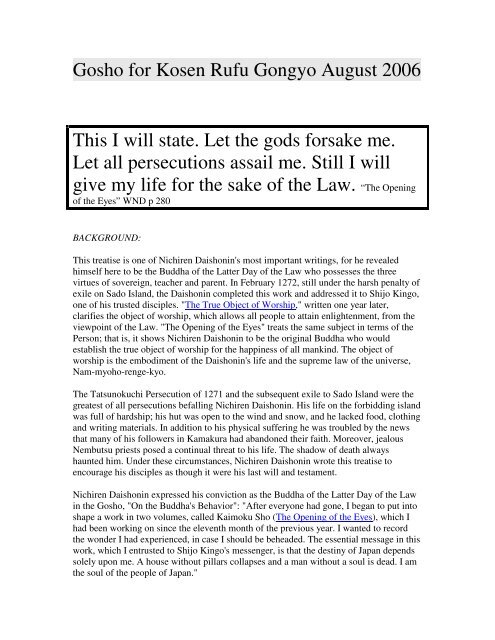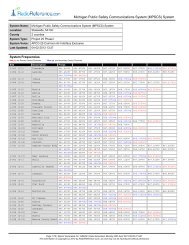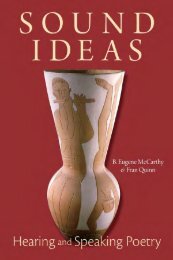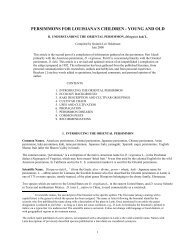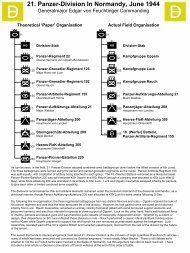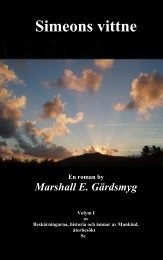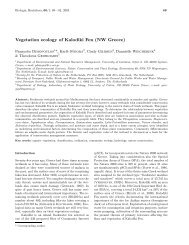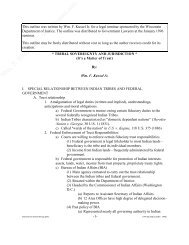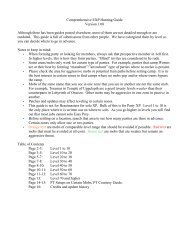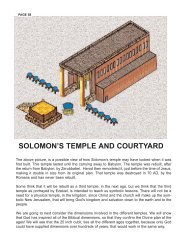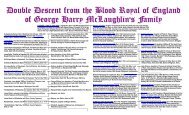Gosho for Kosen Rufu Gongyo August 2006.pdf
Gosho for Kosen Rufu Gongyo August 2006.pdf
Gosho for Kosen Rufu Gongyo August 2006.pdf
You also want an ePaper? Increase the reach of your titles
YUMPU automatically turns print PDFs into web optimized ePapers that Google loves.
<strong>Gosho</strong> <strong>for</strong> <strong>Kosen</strong> <strong>Rufu</strong> <strong>Gongyo</strong> <strong>August</strong> 2006<br />
This I will state. Let the gods <strong>for</strong>sake me.<br />
Let all persecutions assail me. Still I will<br />
give my life <strong>for</strong> the sake of the Law. “The Opening<br />
of the Eyes” WND p 280<br />
BACKGROUND:<br />
This treatise is one of Nichiren Daishonin's most important writings, <strong>for</strong> he revealed<br />
himself here to be the Buddha of the Latter Day of the Law who possesses the three<br />
virtues of sovereign, teacher and parent. In February 1272, still under the harsh penalty of<br />
exile on Sado Island, the Daishonin completed this work and addressed it to Shijo Kingo,<br />
one of his trusted disciples. "The True Object of Worship," written one year later,<br />
clarifies the object of worship, which allows all people to attain enlightenment, from the<br />
viewpoint of the Law. "The Opening of the Eyes" treats the same subject in terms of the<br />
Person; that is, it shows Nichiren Daishonin to be the original Buddha who would<br />
establish the true object of worship <strong>for</strong> the happiness of all mankind. The object of<br />
worship is the embodiment of the Daishonin's life and the supreme law of the universe,<br />
Nam-myoho-renge-kyo.<br />
The Tatsunokuchi Persecution of 1271 and the subsequent exile to Sado Island were the<br />
greatest of all persecutions befalling Nichiren Daishonin. His life on the <strong>for</strong>bidding island<br />
was full of hardship; his hut was open to the wind and snow, and he lacked food, clothing<br />
and writing materials. In addition to his physical suffering he was troubled by the news<br />
that many of his followers in Kamakura had abandoned their faith. Moreover, jealous<br />
Nembutsu priests posed a continual threat to his life. The shadow of death always<br />
haunted him. Under these circumstances, Nichiren Daishonin wrote this treatise to<br />
encourage his disciples as though it were his last will and testament.<br />
Nichiren Daishonin expressed his conviction as the Buddha of the Latter Day of the Law<br />
in the <strong>Gosho</strong>, "On the Buddha's Behavior": "After everyone had gone, I began to put into<br />
shape a work in two volumes, called Kaimoku Sho (The Opening of the Eyes), which I<br />
had been working on since the eleventh month of the previous year. I wanted to record<br />
the wonder I had experienced, in case I should be beheaded. The essential message in this<br />
work, which I entrusted to Shijo Kingo's messenger, is that the destiny of Japan depends<br />
solely upon me. A house without pillars collapses and a man without a soul is dead. I am<br />
the soul of the people of Japan."
The ultimate teaching expounded by all Buddhas reveals that all living<br />
beings possess the life-state of Buddhahood. The Lotus Sutra also clearly<br />
states that Buddhas fulfill the purpose of their appearance in the world by<br />
opening <strong>for</strong> all living beings the door to the Buddha wisdom lying dormant<br />
in their lives, showing it to them, causing them to awaken to it and guiding<br />
them to enter its path (see The Lotus Sutra, p. 31 )-in other words, enabling<br />
all to attain enlightenment. The essence of this ultimate teaching of the<br />
Buddhas is to help everyone actualize the same great enlightenment that they<br />
have achieved. That is why Buddhism is at all times concerned with raising<br />
disciples who will exert themselves in faith and practice with the same spirit<br />
as the mentor. Buddhism is none other than a philosophy of mentor and<br />
disciple.<br />
And the spirit of this philosophy of mentor and disciple truly comes to<br />
life only when the disciples' hearts blaze with the same bright spiritual flame<br />
evinced by Nichiren, who proclaimed: "Let the gods <strong>for</strong>sake me. Let all<br />
persecutions assail me. Still 1 will give my life <strong>for</strong> the sake of the Law"<br />
(WND, 280).In that sense, the Daishonin's focus on "I and my disciples" in<br />
this passage can also be read as a call <strong>for</strong> the emergence of ranks of capable<br />
successors who will continue his struggle. (From SGI President Ikeda's<br />
Study Lecture Series on "The Opening of the Eyes" [16], March-April 2006<br />
Living Buddhism, pp. 72_73)


